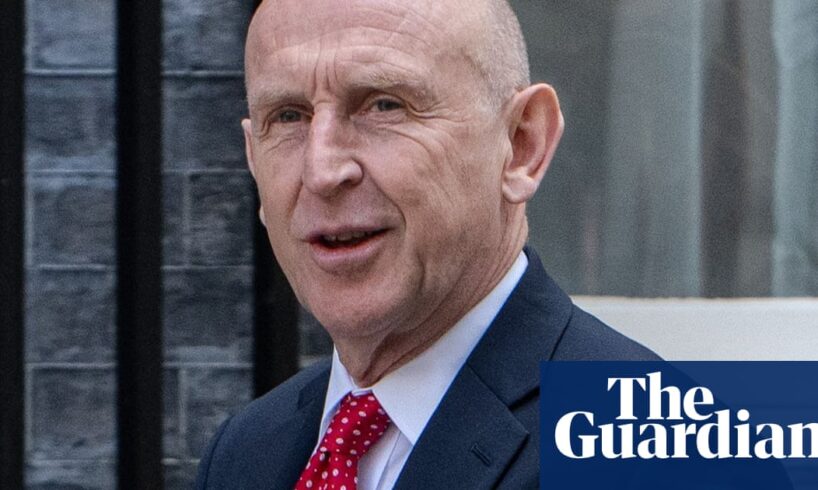
The defence secretary, John Healey, has said there is no automatic right to resettlement for Afghans named in a leaked Ministry of Defence database, as the former Conservative ministers Ben Wallace and Johnny Mercer clashed over whether “thousands of people with little or tenuous links” had been admitted to Britain.
The controversy revolves around a dataset containing the personal information of nearly 19,000 people who applied for the Afghan relocations and assistance policy (Arap) that was released “in error” in February 2022 by a British defence official.
The MoD only became aware of the breach when excerpts from the dataset were posted anonymously on a Facebook group in August 2023, and a superinjunction was granted at the high court in an attempt to prevent the Taliban from finding out about the leak.
Healey told Sky News: “Most of those names on the list were people who didn’t work alongside our forces, didn’t serve with our forces, aren’t eligible for the special scheme that Britain put in place quite rightly to recognise that duty we owe those brave Afghans who supported our forces.
“Now they’re not eligible for that. Their name is on the dataset, and there was never the plan, to bring everyone on that dataset into this country, and nor should we.”
Asked if the risk posed by the leak could give them a right to claim asylum, he said: “It doesn’t give them a right to claim access to Britain. It doesn’t give them a right to claim asylum. It doesn’t make them eligible for the special scheme that Britain put in place for those who’d worked alongside or served with our forces.”
Wallace, who was defence secretary at the time of the leak, denied that the Conservatives applied for a superinjunction. He told the BBC’s Today programme that when ministers went to the high court to stop reporting of the leak, “we applied for a four-month injunction, a normal injunction”.
He said: “I was not in court in September 2023 when the injunction was converted into a superinjunction, so I don’t know why it was converted.”
Healey directly challenged Mercer’s assertion that thousands of Afghans with weak links to the UK had been admitted under the scheme. “It’s not correct. Not in the period I’ve been responsible for this scheme,” he told BBC Radio 4.
“This dataset contained names of many people who had never worked with our forces and were not eligible under the Arap scheme,” Healey said. “Some were simply speculative applications. Their inclusion in the dataset didn’t make them eligible then and doesn’t now.”
Wallace agreed. He told Radio 4’s Today programme: “I don’t think he’s [Mercer] entirely right. Originally, it was assessed there’d be about 12,000 people going spanning the 20 years, plus their families who had been leaked to working directly for the British state … The total number seems to be 18,000. I believe they were the right people.”
Wallace added: “The policy was, we didn’t want the whole Afghan army to come. These were people directly linked to our different parts of our military.”
On Tuesday, Healey told MPs he had been “deeply uncomfortable” with the secrecy imposed by the previous government. “I have been deeply uncomfortable to be constrained from reporting to this house,” he said in parliament. He told broadcasters the following morning: “Accountability starts now.”
Wallace defended the initial decision to seek secrecy, saying: “The most important priority was to protect those people who could have been or were exposed by this data leak in Afghanistan, living amongst the Taliban who had no regard for their safety, or indeed potentially could torture them or murder them. That was my priority.”





